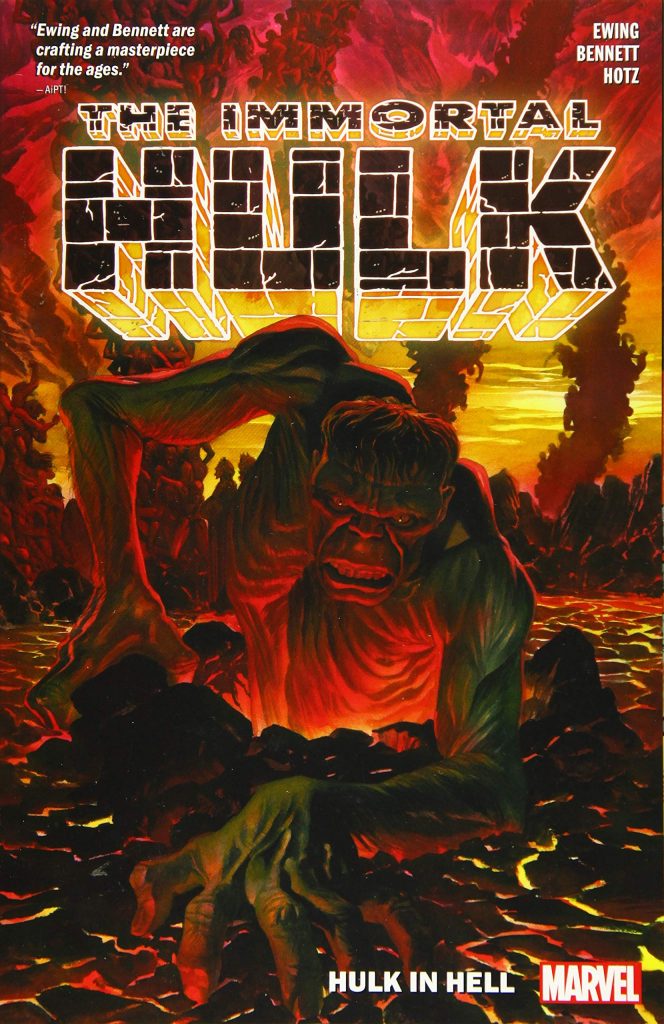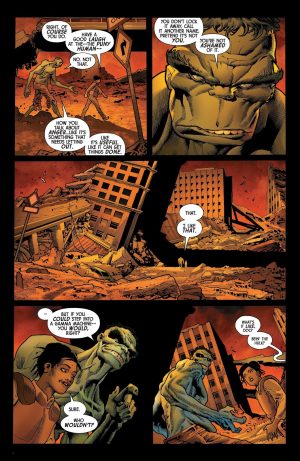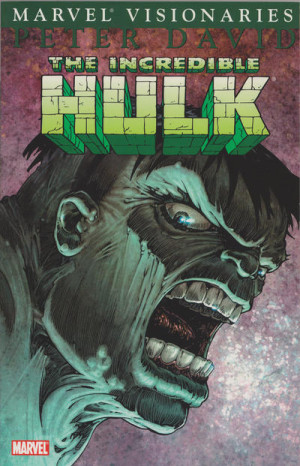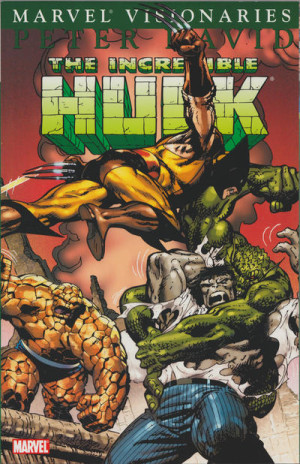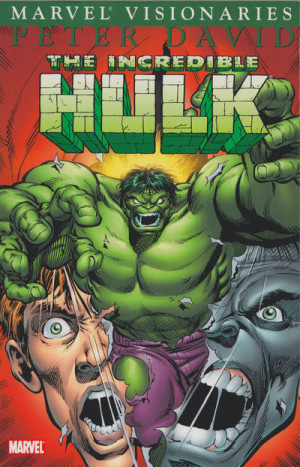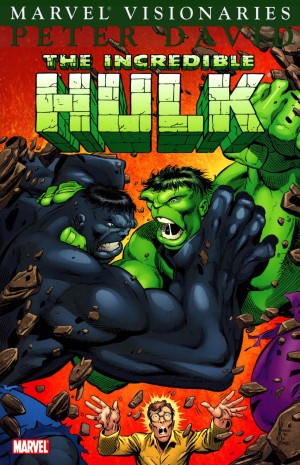Review by Frank Plowright
If there were any doubts about Al Ewing playing a long game in The Immortal Hulk, it’s hammered home during an opening conversation between the Hulk and journalist Jacqueline McGee, around for a while now, her purpose well enough defined, but here taking a leap. Given an opportunity in Or Is He Both? her response surprised greatly. That response is addressed during a walk through Hell, and brilliantly extrapolated into a wider area of social concern. It’s matched by other conversations in the opening chapter along with consideration of what constitutes an act of god. We’ve seen the Hulk, and other superheroes, confronted by the ghosts of their pasts before, but not like this. It’s intelligent character writing with a point to make, and while there was certainly nothing poor about The Green Door, this sort of consideration was missing.
Ewing’s taken a brave step with Hulk in Hell, because the perception would be that folk don’t read The Hulk to absorb theological discussions about what constitutes good and evil, referencing ancient deliberations on the matter. Ewing’s smart enough to ensure that doesn’t dominate, including diversions, but that’s his major point, and in making it he redefines our perception of what the Hulk is yet again. The feeling is that in the long term it’ll make little difference, but it’s an interesting idea, and there’s a lot more of Ewing’s Hulk to come.
Guest artists are more sympathetically inserted than last time round. Circumstances dictate Joe Bennett moving away from his detailed naturalism for much of this selection, but he’s still interesting, twisting bodies about over three chapters of Hell. Within that Eric Nguyen illustrates a look back to Bruce Banner’s childhood, an upsetting incident also providing an insight into his father’s conflicted personality. Kyle Hotz has a chapter to himself, and is uncharacteristically constrained, having to deliver personality in a normal world with little recourse to his energetic distortions. He’s called on to illustrate a funeral followed by the reunion of Bruce and Betty Banner, heavy on tormented emotion, which he copes with, and Hotz illustrates a great sinister lab.
Anyone wanting to know the frankly convoluted back story of assorted Hulks gets it via Doc Samson in the final chapter, and while The Immortal Hulk is better enjoyed without worrying too much about what came before, it plays into where Ewing is taking his bigger plot. The next volume being titled Abomination is fair indication of where it’s heading.
Previous continuity is used well here. Bruce Banner’s death and resurrection has a wider purpose applicable to anyone else transformed by gamma radiation, and that has repercussions to come. Hulk in Hell is an absorbing outing, clever and engaging, and Ewing is proving himself the Hulk’s best writer since Peter David in his pomp (see recommendations).
Because Ewing and Bennett’s Hulk was so well received, it was rapidly republished in other formats. The first three trades are combined as The Immortal Hulk Omnibus, and this is added to Abomination in hardcover as The Immortal Hulk Volume 2.
